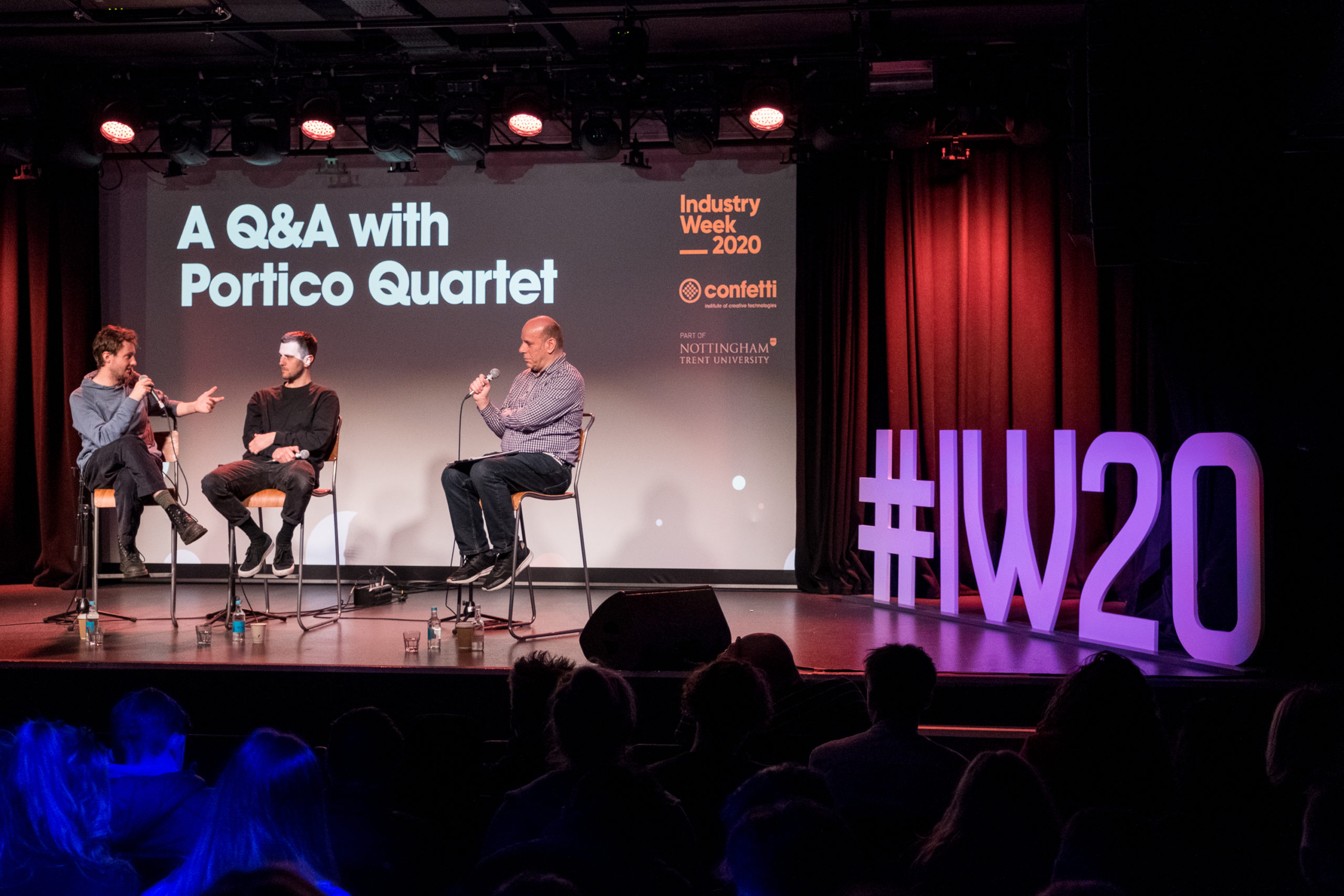
Confetti student, Michael Kane attended the Portico Quartet Q&A hosted by BBC’s Dean Jackson, and their performance at Metronome on Thursday 27 February.
In the run up to Industry Week, I spotted a poster for Portico Quartet’s gig in Metronome – “echoes of jazz, electronica, ambient music and minimalism” – sounds good to me. Not long afterwards, I saw that the band were doing a Q&A for students as part of Industry Week – so I jumped at the chance to attend both – and I’m glad I did.
Hosted by Dean Jackson, the Q&A featured Jack Wyllie (saxophone) and Duncan Bellamy (drums) from the band – and together they discussed everything from the formation of the band and their approach to writing music, through to the role of social media, releasing commercial music and advice for putting a team together to support your music.
Early in the talk, Jack brought up an interesting point about being labelled as a jazz band, and how this was something they initially resisted. This prompted discussion about how important genre is – or isn’t – and how it can be difficult to describe a sound when it’s the result of so many different influences. Duncan’s description of Portico Quartet’s sound as “widescreen instrumental music” is actually quite fitting (more on this later…)
It was fascinating to hear how the band started, too; how they honed their craft by jamming and busking in London every weekend. From there Jack and Duncan shared how they first got a booking agent and the process of the band getting signed to a record label, providing valuable insight into how to navigate the industry for all of us just getting started in our musical careers. As someone who prefers to listen to albums rather than playlists and singles, I was also reassured by the discussion around the album still being a valuable platform for bands and artists to release their music despite the pressure to maximise reach on streaming platforms.
The band also touched on their progression towards more electronic textures, and their use of samplers and other tech to generate ideas, both in studio and in a live setting. Being a music tech student as well as a performer, this piqued my interest and got me even more excited for the show, and eager to see how it would all come together on stage.
In the evening I made my way back into the auditorium to catch Daudi Matsiko. This was my third time seeing Daudi play here in Nottingham and, as usual, his beautifully crafted and painfully honest songs didn’t fail to make an impression on the room.
A little later, the stage was set for Portico Quartet. The band opened with Signals in the Dusk, which features the band’s trademark hang drum which loops and builds into a dark, undulating groove. Right from the start, the auditorium was immersed in sound – and I’m reminded of Duncan’s description of their widescreen cinematic music. It’s almost hard to think that I was sitting in the same room listening to the Q&A just a few hours before, and by 10 am the next morning I’d be here again for a lecture.
Throughout the set I was completely transfixed, trying to keep up with all of the different sounds and where they were all coming from – as each band member overlapped with the what was being played by another by triggering sounds on synthesizers, samplers and other gadgets. On top of that, I was amazed by the amount of different tones that could be achieved by each instrument on its own, but especially the drums (I don’t think I’ve ever heard a snare drum quite like it).
Hearing songs like Offset and With, Beside, Against in person was a real treat, and the level of musicianship on display was amazing, something that was all the more impactful having had the chance to hear from the band themselves beforehand. After the gig was finished, my head was swimming with ideas, and I couldn’t wait to get into the studio to try and figure out how to recreate some of those sounds!

